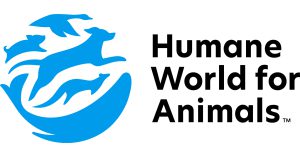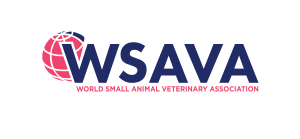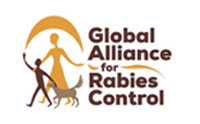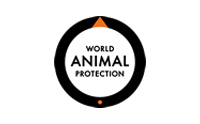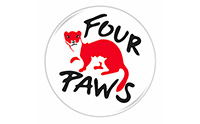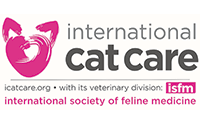Newly published UN General Comments
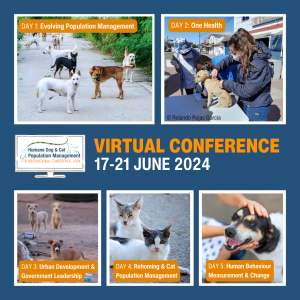
The Committee on the Rights of the Child (the Committee), which is composed of 18 independent experts, has published their General Comment No. 26 (2023) on Children’s Rights and the Environment, with a Special Focus on Climate Change stating that “children must be protected from all forms of physical and psychological violence and from exposure to violence, such as domestic violence or violence inflicted on animals.” The Committee is responsible for interpreting and monitoring the implementation of the UN Convention on the Rights of the Child (the Convention); the most complete statement of children’s rights ever produced and is the most widely-ratified international human rights treaty in history.
Want to learn more? On day 5 of our 2024 virtual conference you can hear Roshni Ladny & Deborah Wilson’s presention titled ‘“Violence Against Animals as Violence Against Children”: Implications of the United Nations Convention on the Rights of the Child GC 26 and Concluding Observations’ – register for free on our conference webpage.
It may seem obvious that children should not watch animals suffer from violence, and that witnessing such violence could lead to harmful effects on children. But for the Committee to have stated in their General Comments that they share this perception is ground breaking for children, parents and animals alike. These General Comments provide guidance to member states on how to practically implement the rights of children. They also send a clear message regarding the UN’s position on relevant issues and provide more extensive grounds on which right holders can defend their enjoyment of specific rights. General Comment No 26 specifically states that violence towards animals is a type of violence that should not be witnessed by children, and as such, should incentivise Member States to review and implement the Committee’s recommendations into their respective domestic legislation.
Those lobbying against cruel control of free-roaming dogs and cats could now leverage the Convention as a relevant concern, advocating to halt culls to protect the rights of the child. ICAM proposes that the trauma associated with witnessing culling may also be felt when witnessing the suffering of free-roaming animals from other causes, such as aggression from citizens, road traffic accidents, sickness and starvation. We promote humane dog and cat population management as an alternative to culls and to address the additional causes of suffering experienced by free-roaming animals; hence protecting both animal welfare and childrens’ rights.
Previous Concluding Observations
Between publications of General Comments, the Committee also publishes its observations of country specific implementation of the Convention. Previously, the Committee has made observations about how seven countries (Portugal, Columbia, Mexico, Peru, France, Ecuador and Spain) are failing to implement the convention by allowing children to observe bullfighting and bull-running events. Previous interpretations may have been limited to witnessing violence towards humans, so this indicated a shift towards recognising violence towards animals as an important and relevant concern for child development. In concluding observations to Tunisia, the Committee called for an ‘elimination of societal violence against animals’ to protect children from experiencing potential ‘Harmful Effects’. However, it was only in the Committee’s 2023 concluding observations regarding Azerbaijan’s report that societal violence against dogs in particular was mentioned. The Committee urged the State Party in question “to eliminate violent traditions and practices, such as shooting dogs in public, and raise awareness among State officials, the media and the public about the negative effects on children of exposure to such practices”.
ICAM urges authorities to take note of this UN Committee’s recognition that witnessing violence towards animals is damaging to children. To protect childrens’ rights, all forms of violence towards animals in public must halt, including culling of free-roaming animals. ICAM promotes the use of humane dog and cat population management as an alternative to culling, as described in the World Organisation for Animal Health’s standards (Chapter 7.7 Terrestrial Code) and explained in ICAM’s free online courses in dog population management implementation and policy making.
Background:
About the Convention
The UN Convention on the Rights of the Child (the Convention) is the most complete statement of children’s rights ever produced and is the most widely-ratified international human rights treaty in history. It considers that the child should be fully prepared to live an individual life in society, and brought up in the spirit of the ideals proclaimed in the Charter of the United Nations, and in particular in the spirit of peace, dignity, tolerance, freedom, equality and solidarity. As of 2022, 196 countries are parties to the UNCRC treaty. This includes every member of the UN, except the United States, who has either ratified or accepted the rights articulated for the child under eighteen or below the age of majority in that state.
The content of the Convention
The Convention is designed to protect children’s rights, including their protection from any form of violence. One of its key objectives is to ensure the right to life, survival, and development for every child. Article 6 establishes this general principle, emphasizing that a child’s mental and physical development should be ensured to the maximum extent possible. This aligns with Article 19, which requires State Parties to take measures to protect children from violence, whether they are receiving or witnessing it.
The Committee
To ensure that the Convention is being upheld, Articles 43 and 44 establish the Committee on the Rights of the Child (the Committee), which is composed of 18 independent experts. The Committee is responsible for monitoring the implementation of the Convention and its Protocols by the State parties. The Committee examines reports submitted by Member States every 5 years and provides recommendations in the form of ‘Concluding Observations’ to address its concerns about specific states. Additionally, the committee publishes its interpretation of human rights provisions in ‘General Comments’, which provide recommendations on any issue relating to children that it believes State parties should pay more attention to.
The Concluding Observations of the Committee and all the other Treaty Bodies are not legally binding and so they are not enforceable on a national level. However, if a State Party transposes the Treaty into its national law it becomes legally binding for that State. At that point, the State must comply with the obligations under a treaty and be accountable for it.
General Comments provide analysis and interpretation of specific articles of the Convention or deal with thematic issues related to the rights of the child. As an authoritative interpretation, they guide States on how to implement the obligations contained in the Convention. They also send a clear message regarding the UN’s position on relevant issues and provide more extensive grounds on which right holders can defend their enjoyment of specific rights. The General Comment No 26 specifically states that violence towards animals is a type of violence that should not be witnessed by children, and as such it could incentivize Member States to review and implement the Committee’s recommendations into their respective domestic legislation.
Further resources:
- Resource Centre of the National Link Coalition: www.nationallinkcoalition.org
- European Link Coalition: www.europeanlinkcoalition.com
About International Companion Animal Management (ICAM) Coalition
ICAM supports the development and use of humane and effective companion animal population management worldwide. The coalition was formed in 2006 as a forum for discussion on global dog and cat management issues.
Our key goals are to:
- Share ideas and data
- Discuss issues relevant to population management and welfare
- Agree definitions and hence improve understanding
- Provide guidance as a collegial and cohesive group
Contact information: info@icam-coalition.org
Twitter: @ICAMCoalition

